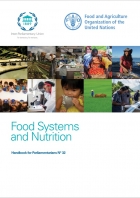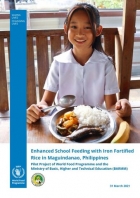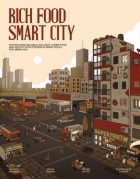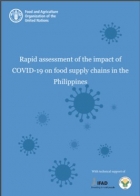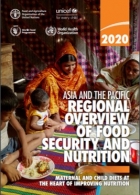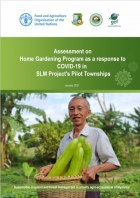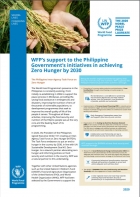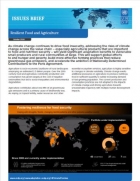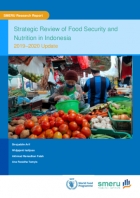Harvested Resources
Food Systems and Nutrition: Handbook for Parliamentarians N° 32
Parliamentary action is fundamental to securing the right to adequate food for all. Parliamentarians guide and oversee public-sector policies and budget allocations towards transforming food systems that deliver healthy diets for all. The emergence of COVID-19 has shown the weakness in our food systems. Within three months of COVID-19’s arrival, disruptions were seen in all aspects of the food system-production, harvesting, transportation, processing, retailing and consumption – affecting…
Food and Agriculture Organization of the United Nations
Enhanced School Feeding with Iron Fortified Rice in Maguindanao, Philippines - 2021
In 2006, the World Food Programme (WFP) re-established support in Mindanao by implementing food assistance, school feeding and sustainable livelihood projects to improve economic conditions. In 2018, WFP supported the implementation of Homegrown School Feeding in Maguindanao and conducted a Fill the Nutrition Gap study in all regions including BARMM as basis for a framework for a strengthened nutrition situation analysis and decision making on nutrition programs. Of the major indicators on…
31 Mar 2021World Food Programme
RICH Food, Smart City : How Building Reliable, Inclusive, Competitive, and Healthy Food Systems is Smart Policy for Urban Asia
Across Asia, cities are contending with a wide range of food-related issues but most lack a dedicated or coherent set of food policies. For most cities in Asia, food has been a policy and governance blind spot, while national food policy has distinctly lacked an urban perspective. Arguing that food system outcomes are central to the topmost priorities of Asian cities, RICH Food, Smart City calls for cities of all sizes to “get smart to get RICH”—that is, to pursue food policies that…
3 Mar 2021World Bank
Rapid assessment of the impact of COVID-19 on food supply chains in the Philippines
FAO
The FAO report looks at rural livelihood and agricultural market chains as a critical component of the country’s food security capacity, and the related effects to it of the community restrictions imposed due to the COVID-19 pandemic. Likewise, the report assesses the impact of COVID-19 on the access of the most vulnerable population that may result in a high rate of malnutrition. The results are expected to provide an information base to aid in local and national decision-making to alleviate…
FAO
Asia and the Pacific regional overview of food security and nutrition 2020: Maternal and child diets at the heart of improving nutrition
The report, ‘Asia and the Pacific Regional Overview of Food Security and Nutrition 2020: Maternal and Child Diets at the Heart of Improving Nutrition’ found that 1.9 billion people were unable to afford a healthy diet in this region, even before the COVID-19 outbreak and the damage it has since caused to economies and individual livelihoods. The report was published jointly by the Food and Agriculture Organization of the United Nations, the United Nations Children’s Fund, the World Food…
FAO, UNICEF, WFP and WHO
Assessment on Home Gardening Program as a Response to COVID-19 in SLM's Project's Pilot Townships
The Food and Agriculture Organization of the United Nations (FAO) is working closely with Department of Planning of Ministry of Agriculture, Livestock and Irrigation (MoALI) in order to implement the Section 2.1.7 of the COVID-19 Economic Relief Plan (CERP) by supporting farmers, small agricultural processors, seed farmers and agriculture businesses. In order to support the CERP implementation plan, the project, in collaboration with respective Department of Agriculture (DoA) office in pilot…
Food and Agriculture Organization of the United Nations (FAO)
Indonesia: COVID-19: Economic and Food Security Implications (4th Edition)
Nine months since the first case of COVID-19 was identified in Indonesia, the effects of the pandemic are continuing to unfold. The scope of its impact on the economy, livelihoods, food security and nutrition is still evolving. Inequities related to employment, income earning, and gender are increasing. Although positive signs of recovery have begun, full economic recovery is likely to take a long time. The lockdowns, that restricted non-essential socio-economic activities and movement in…
15 Dec 2020World Food Programme
WFP’s Support to the Philippines Government’s Initiatives in Achieving Zero Hunger by 2030 - 2020
The Philippine Government created the Zero Hunger Task Force to spearhead its efforts in battling hunger and ending it by 2030. As the largest humanitarian agency battling hunger worldwide, WFP’s activities in the Philippines are aligned with the initiative of the task force and its demonstrative arm, the Enhanced Partnership Against Hunger and Poverty.
16 Dec 2020World Food Programme Philippines
UNDP Issues Brief on Resilient Food and Agriculture
As climate change continues to drive food insecurity, addressing the risks of climate change across the value chain – especially agricultural products that are important to food and nutrition security – will yield significant adaptation benefits to vulnerable small producers and rural communities at large. This will support global efforts to end hunger and poverty, build more effective farming practices that reduce greenhouse gas emissions, and accelerate the ambition of Nationally…
6 Nov 2020United Nations Development Programme
Strategic Review of Food Security and Nutrition in Indonesia: 2019–2020 Update
This report is an update of the 2014–2015 Strategic Review. It was initiated in August 2019 and was extended until July 2020 to cover the initial impact of the COVID-19 pandemic on food security and nutrition. It is based on the latest secondary data available, updates on relevant policies and programmes related to food security and nutrition, the latest discourses, and emerging issues, including the impact of the COVID-19 pandemic. This report presents: (1) an update on the food security…
22 Oct 2020United Nations World Food Programme
